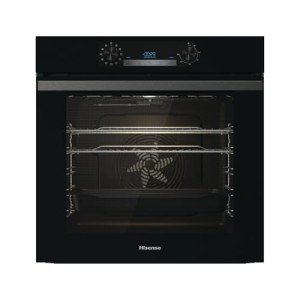3 Reasons Commonly Cited For Why Your Integrated Ovens Isn't Working (And How To Fix It)
The Rise of Integrated Ovens: Revolutionizing Home Cooking
In the contemporary cooking landscape, integrated ovens have actually become an essential advancement, changing conventional cooking practices through their stylish design and complex functionality. As property owners make every effort for both aesthetic appeal and useful utility, integrated ovens have actually become gradually popular in kitchens worldwide. This post intends to look into the features, advantages, and considerations of integrated ovens, providing possible purchasers with important insights to make educated choices.
What Are Integrated Ovens?
Integrated ovens are built-in kitchen appliances developed to flawlessly blend into kitchen cabinetry, offering a sleek and modern look. Unlike standalone ovens, which use up floor space and can interrupt the visual flow of a kitchen, integrated ovens are installed within kitchen cabinetry, providing a streamlined look that takes full advantage of space effectiveness.
Types of Integrated Ovens
Integrated ovens can be classified into numerous classifications based upon their functions and performances:
Type
Description
Single Ovens
A single compartment for baking and preparing tasks.
Double Ovens
Two compartments allowing simultaneous cooking at different temperature levels.
Steam Ovens
Utilizes steam for cooking, preserving nutrients and wetness in food.
Convection Ovens
Distributes hot air for even cooking and browning.
Wall Ovens
Built into the wall for simple gain access to, often favored in modern-day cooking areas.
Key Features of Integrated Ovens
Aesthetic Appeal: Integrated ovens can match the color and design of kitchen cabinetry, creating a cohesive and stylish kitchen design.
Space Efficiency: By making use of vertical area and minimizing countertop clutter, integrated ovens enhance kitchen designs, particularly in smaller sized homes.
Advanced Technology: Many integrated ovens include modern functions such as digital control board, smart innovation, and numerous cooking functions to improve the cooking experience.
Energy Efficiency: Designed with insulation and effective heating elements, integrated ovens typically take in less energy than traditional designs.
Versatility: Integrated ovens often consist of numerous cooking functions, such as baking, broiling, roasting, and steaming, making them ideal for a wide range of recipes.
Benefits of Integrated Ovens
1. Smooth Integration
Integrated ovens provide an inconspicuous look in the kitchen. When picked properly, they can end up being a part of the total style rather than a device that sidetracks from the visual.
2. Improved Cooking Performance
Numerous integrated ovens are geared up with boosted cooking innovation, including convection systems that make sure more even cooking and browning. This function improves the total quality of ready meals.
3. Increased Accessibility
With integrated wall ovens, users can prevent bending down to access the oven, making it much easier to load and discharge meals, which is especially beneficial for those with mobility challenges.
4. Customizable Options
Integrated ovens can be personalized to fit particular kitchen measurements and personal preferences, permitting for various installations, sizes, and surfaces.
5. Boosted Resale Value
An aesthetically pleasing integrated oven can improve the overall worth of a home, making it an appealing selling point for potential purchasers.
Considerations When Choosing an Integrated Oven
While integrated ovens present lots of benefits, there are several elements to consider before purchasing:
1. Size and Dimensions
- Examine kitchen measurements: Ensure the integrated oven's measurements match your available area.
- Think about appliance clearance: Adequate space for air flow and opening doors is vital.
2. Cooking Capacity
- Single vs. double oven: Assess family cooking needs. Large households might gain from double ovens to prepare numerous dishes simultaneously.
3. Source of power
- Electric vs. gas: Determine the favored cooking source based on the type of fuel available in the kitchen.
4. Features and Functions
- Evaluate must-have functions: Decide on necessary functions like steam cooking, convection settings, or wise innovation for convenient operation.
5. Spending plan Considerations
- Checking out price ranges: Integrated ovens come in different rate points. Evaluate your budget plan and seek appliances that stabilize quality and affordability.
FAQ
1. Can integrated ovens be retrofitted into existing kitchens?
Yes, numerous integrated ovens can be suited existing kitchen cabinetry. Nevertheless, it is a good idea to seek advice from with a professional kitchen designer to guarantee a correct fit.
2. How do I preserve an integrated oven?
Routine maintenance consists of cleaning up the oven interior and outside, checking seals, and occasionally inspecting heating aspects for performance.
3. Are integrated ovens energy-efficient?
Generally, integrated ovens are created to be energy-efficient due to their insulation and modern-day heating innovation, possibly minimizing energy costs with time.
4. Can integrated ovens be used for baking and roasting?
Most integrated ovens use several cooking functions, making them ideal for baking, roasting, broiling, and other cooking techniques.
5. Is just click for source to install an integrated oven?
Setup might need professional support, especially if electrical or pipes work is needed. DIY setup may void the guarantee; hence seeking assistance from skilled installers is advised.
Integrated ovens represent a substantial development in modern-day kitchen style and functionality, merging style with efficiency. Their smooth combination and advanced abilities make them an enticing option for property owners seeking to raise their cooking experience while enhancing their kitchen's aesthetic. With different types and features offered, potential buyers ought to carefully consider their unique requirements, ensuring that they choose the best integrated oven for their culinary needs. In a time where visual appeals and efficiency are similarly paramount, integrated ovens certainly stand as a commendable option within the world of home cooking.
